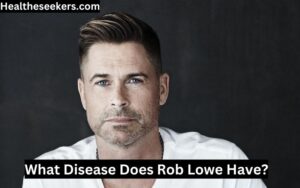Introduction
Celine Dion, the celebrated Canadian singer known for her powerful voice and emotive performances, has been a significant figure in the music industry for decades. With a career that has spanned multiple genres and garnered numerous awards, Dion’s influence on the world of music is undeniable. However, in recent years, Dion has faced significant health challenges that have impacted her ability to perform and maintain her usual vibrant presence. This article provides an in-depth look at the health condition affecting Dion, known as Stiff-Person Syndrome (SPS).
What is Stiff-Person Syndrome?
Stiff-Person Syndrome is a rare neurological disorder characterized by stiffness and rigidity of the muscles, as well as heightened sensitivity to stimuli. The condition is classified as a type of autoimmune disorder, where the body’s immune system mistakenly attacks its own tissues. This leads to severe muscle stiffness, muscle spasms, and other symptoms that can severely affect a person’s quality of life.
Historical Context and Discovery
Stiff-Person Syndrome was first described in medical literature in the 1950s, but it remains relatively rare, with only a few hundred cases reported globally. It was initially identified as a condition affecting the spine and muscles, but further research has revealed that it can affect other parts of the body as well. The precise cause of SPS is still not fully understood, but it is believed to involve a combination of genetic, environmental, and autoimmune factors.
Symptoms and Diagnosis
The hallmark symptoms of Stiff-Person Syndrome include:
- Muscle Stiffness: Individuals with SPS experience progressive muscle stiffness, primarily affecting the back and limbs. This stiffness can make it difficult to move and perform everyday tasks.
- Muscle Spasms: In addition to stiffness, patients may experience painful muscle spasms or contractions, which can be triggered by stress, sudden movements, or even minor stimuli.
- Postural Instability: The stiffness and spasms can lead to difficulties with balance and coordination, increasing the risk of falls.
- Sensory Sensitivity: People with SPS may have heightened sensitivity to stimuli such as noise, light, and touch, which can exacerbate their symptoms.
- Pain: Chronic pain is often a significant component of the condition, affecting the individual’s overall well-being and daily functioning.
Diagnosis of Stiff-Person Syndrome can be challenging due to its rarity and the overlap of symptoms with other neurological disorders. It typically involves a combination of clinical evaluation, patient history, and various diagnostic tests, including:
- Blood Tests: To check for specific autoantibodies associated with SPS.
- Electromyography (EMG): To assess electrical activity in the muscles.
- Neuroimaging: MRI or CT scans may be used to rule out other conditions.
- Lumbar Puncture: To analyze cerebrospinal fluid for signs of inflammation or other abnormalities.

Celine Dion’s Health Journey
In December 2022, Celine Dion announced that she had been diagnosed with Stiff-Person Syndrome, which she described as an “incredibly challenging” condition. The news came as a shock to many of her fans and the broader public, given Dion’s typically vibrant and energetic public persona.
The announcement detailed that Dion had been experiencing significant health issues that led to her diagnosis. In her statement, Dion expressed her frustration and sadness about the impact of the condition on her life and career. She noted that the symptoms had made it increasingly difficult for her to perform and even to undertake routine activities.
Dion’s diagnosis has led to her canceling several planned performances and public appearances. This has understandably been a source of disappointment for her fans, but Dion has been open about her struggles, using her platform to raise awareness about Stiff-Person Syndrome.
Treatment and Management
While there is currently no cure for Stiff-Person Syndrome, there are various treatment strategies aimed at managing symptoms and improving quality of life. Treatment typically involves a multidisciplinary approach, including:
- Medications: Several types of medications can help manage the symptoms of SPS, including:
- Muscle Relaxants: Drugs such as baclofen or diazepam may help reduce muscle stiffness and spasms.
- Anti-Seizure Medications: Medications like gabapentin or pregabalin can be used to manage muscle spasms and pain.
- Immunosuppressants: In cases where the syndrome is linked to an autoimmune response, immunosuppressive drugs may be prescribed.
- Physical Therapy: Physical therapy can be beneficial in improving mobility, strength, and flexibility. A tailored exercise program can help individuals with SPS maintain their physical function and reduce stiffness.
- Occupational Therapy: Occupational therapists can help individuals adapt to daily living activities and provide strategies to manage symptoms more effectively.
- Pain Management: Techniques such as acupuncture, massage therapy, and cognitive-behavioral therapy (CBT) may help manage chronic pain associated with SPS.
- Supportive Therapies: Counseling and support groups can be helpful in addressing the emotional and psychological impact of living with a chronic illness.
Impact on Celine Dion’s Career and Public Life
Celine Dion’s diagnosis with Stiff-Person Syndrome has had a profound impact on her career and public life. Known for her powerful live performances and extensive touring, Dion’s condition has necessitated a significant shift in her professional plans.
- Performance Cancellations: Dion has had to cancel several planned performances and public appearances, which has been a significant adjustment for both her and her fans. The decision to step back from performing is a testament to the severity of her condition and the need for proper management and care.
- Public Reaction: The news of Dion’s diagnosis has garnered widespread sympathy and support from fans and fellow artists alike. Many have expressed their understanding and concern, offering their best wishes for her recovery and well-being.
- Awareness and Advocacy: By sharing her experience with Stiff-Person Syndrome, Dion has helped raise awareness about this rare and often misunderstood condition. Her high-profile case has brought attention to SPS and highlighted the need for further research and understanding.
Future Outlook
The future for individuals with Stiff-Person Syndrome, including Celine Dion, involves ongoing management and adaptation. While there is no cure for SPS at present, advances in medical research and treatment options continue to evolve. For Dion, managing her condition will likely involve a combination of medical treatment, physical therapy, and personal adjustments to her lifestyle.
For her fans and the public, supporting Dion means respecting her need for rest and understanding the challenges she faces. Dion’s openness about her health condition has provided a valuable opportunity to increase awareness and foster greater empathy for those living with similar conditions.
What is Stiff-Person Syndrome, and how does it affect the body?
Stiff-Person Syndrome (SPS) is a rare neurological disorder characterized by muscle stiffness, rigidity, and painful muscle spasms. The condition predominantly affects the trunk and limbs, but it can impact other areas of the body as well. Here’s a deeper look into how SPS affects the body:
- Muscle Stiffness and Rigidity: Individuals with SPS experience progressive stiffness in their muscles, which can make movement difficult. This stiffness often starts in the back and spreads to the limbs, leading to a significant reduction in flexibility and range of motion.
- Muscle Spasms: Alongside stiffness, muscle spasms are a common symptom. These spasms can be severe, painful, and unpredictable, often triggered by external stimuli such as noise, light, or sudden movements.
- Postural Instability: The rigidity and spasms can lead to difficulties with balance and coordination. This postural instability increases the risk of falls and accidents, making everyday activities challenging.
- Sensory Sensitivity: Many people with SPS have heightened sensitivity to various stimuli. This increased sensitivity can exacerbate the symptoms of stiffness and spasms, further complicating management and daily living.
- Pain: Chronic pain is a frequent issue for those with SPS. The ongoing muscle stiffness and spasms contribute to discomfort and pain, which can significantly impact an individual’s quality of life.
The exact cause of SPS is still not fully understood, but it is believed to involve autoimmune responses where the body’s immune system mistakenly attacks its own tissues. This leads to the neurological and muscular symptoms observed in SPS.
How was Celine Dion diagnosed with Stiff-Person Syndrome, and what were the initial signs and symptoms?
Celine Dion’s diagnosis of Stiff-Person Syndrome was announced publicly in December 2022. According to Dion’s statements and public reports, her journey to diagnosis involved several key steps:
- Initial Symptoms: Dion began experiencing unusual symptoms that affected her ability to perform and engage in daily activities. These included severe muscle stiffness, painful spasms, and difficulties with movement. The symptoms progressively worsened, prompting her to seek medical evaluation.
- Medical Evaluation: Dion’s symptoms led to consultations with various specialists to determine the underlying cause of her health issues. Her medical team conducted a series of tests, including blood tests, electromyography (EMG), and neuroimaging, to identify the nature of her condition.
- Diagnosis: After extensive testing and evaluation, Dion was diagnosed with Stiff-Person Syndrome. This diagnosis was confirmed through a combination of clinical assessment, diagnostic tests, and ruling out other potential conditions.
The announcement of Dion’s diagnosis was met with concern and support from her fans and the public. Dion has been open about the challenges she faces with SPS, including the impact on her career and daily life.
What treatments and management strategies are available for Stiff-Person Syndrome?
While there is no cure for Stiff-Person Syndrome, several treatments and management strategies can help alleviate symptoms and improve quality of life. These include:
- Medications:
- Muscle Relaxants: Drugs such as baclofen and diazepam can help reduce muscle stiffness and spasms.
- Anti-Seizure Medications: Gabapentin and pregabalin are used to manage muscle spasms and associated pain.
- Immunosuppressants: If the condition is related to an autoimmune response, medications like corticosteroids or other immunosuppressants may be prescribed.
- Physical Therapy: A tailored physical therapy program can help improve flexibility, strength, and overall mobility. This can also assist in managing stiffness and reducing the impact of spasms.
- Occupational Therapy: Occupational therapists can provide strategies and tools to help individuals adapt to daily activities and maintain independence despite their symptoms.
- Pain Management: Techniques such as acupuncture, massage therapy, and cognitive-behavioral therapy (CBT) may be beneficial for managing chronic pain associated with SPS.
- Supportive Therapies: Psychological support through counseling or support groups can be crucial in helping individuals cope with the emotional and psychological impact of living with a chronic illness.
Management of SPS often requires a multidisciplinary approach, involving neurologists, physical therapists, occupational therapists, and other healthcare professionals. Each treatment plan is tailored to the individual’s specific needs and symptoms.
How has Celine Dion’s diagnosis of Stiff-Person Syndrome affected her career and public life?
Celine Dion’s diagnosis with Stiff-Person Syndrome has had a notable impact on her career and public life:
- Performance Cancellations: Due to the severity of her symptoms, Dion has had to cancel several planned performances and public appearances. This decision was made to prioritize her health and ensure she receives the necessary treatment and rest.
- Public Reactions: The news of Dion’s diagnosis was met with a mix of concern and support from fans, fellow artists, and the public. Many expressed their sympathy and offered words of encouragement, acknowledging the challenges Dion faces.
- Awareness and Advocacy: Dion’s openness about her condition has raised significant awareness about Stiff-Person Syndrome. Her high-profile case has brought attention to this rare disorder, highlighting the need for more research and understanding.
- Adaptation and Resilience: Dion has demonstrated resilience in the face of her health challenges. While her career has been affected by the condition, she has continued to use her platform to raise awareness and advocate for those living with similar conditions.
- See Also: What Disease Does Billy Joel Have?
Conclusion
Celine Dion’s battle with Stiff-Person Syndrome underscores the complexities and challenges associated with rare neurological disorders. As one of the most beloved figures in music, Dion’s experience brings to light the realities of living with SPS and the importance of continued research and support for individuals affected by this condition.
By sharing her journey, Dion has not only raised awareness about Stiff-Person Syndrome but also demonstrated resilience and courage in the face of adversity. Her story serves as a reminder of the human aspect behind public figures and the impact that health conditions can have on their lives and careers.
As we continue to follow Dion’s journey, it is essential to support ongoing research and advocate for greater understanding of rare diseases. With increased awareness and continued medical advancements, there is hope for improved treatments and a brighter future for those living with Stiff-Person Syndrome.




